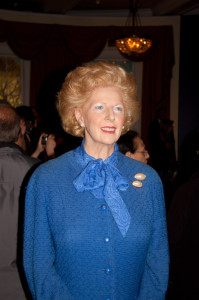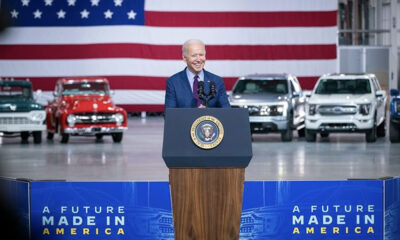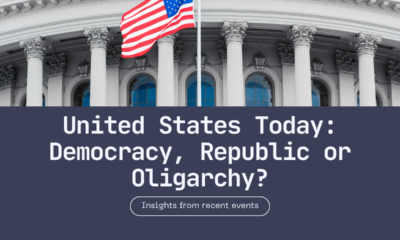World news
Margaret Thatcher, RIP

This morning, Margaret Thatcher died of a stroke. She was 87. She did more in one lifetime than most people might do if they had two. Only if Western people can appreciate what she did, can they save themselves from the sort of tyranny she fought against.
Margaret Thatcher, Anti-Socialist
Margaret Thatcher was one of three key leaders who, together, fought the Soviet Union to a standstill until it collapsed of its own weight. The other two were Ronald Reagan and Pope John Paul II (“the Great”).
She became Prime Minister of Great Britain in 1979. Great Britain had suffered from watered-down “Socialism-lite” even more than had the USA under Jimmy Carter. The British Labour Party, in their long years in power, nationalized almost every major industry. With the result that “public-sector union” had a far more pervasive meaning than it has (so far) had in America. Here in America, a “public-sector union” represents paper pushers, nurses in city hospitals, and the like. (They also represent police officers and fire fighters, but those still consider themselves a different kind of public-sector worker.) In Britain, a coal miner belonged to a “public-sector union,” because the government owned the coal mines. Same for the telephone company, which has never been a government service in America.
Margaret Thatcher saw two problems, one acute, one chronic. The acute problem: like any other union, the best thing those public-sector unions did was strike. The chronic problem: government industries had no incentive to improve their products, their services, or how they delivered them. Likewise, people on the government dole had no incentive to get off it.
As Shadow Secretary for Environment, Margaret Thatcher summed up as only she could:
It’s the Labour Government that have brought us record peace-time taxation. They’ve got the usual Socialist disease — they’ve run out of other people’s money.
As Leader of the Opposition she said it again:
Socialist governments traditionally do make a financial mess. They always run out of other people’s money. It’s quite a characteristic of them.
Then she became Prime Minister and set out to clean up the mess. She returned many industries to the private sector. She also took many government or “council houses” off the public roll and sold them to what now became new homeowners. Those houses were such a money-loser that she would have done just as well to give them away. As it was, she sold them at deep discounts. But the sales were still worth doing for everyone concerned.
Margaret Thatcher, Warrior
Margaret Thatcher was, of course, the first woman to lead a major Western country. Naturally the enemies of freedom tested her mettle. In 1982, the Argentines seized the Falkland Islands, renamed them “Las Islas Malvinas,” and started confiscating radios and other personal property of those who lived there. Margaret Thatcher acted swiftly and surely. Anyone who lived at the time remembers these key moments:
- Prince Andrew, assigned to one of Her Majesty’s Navy’s “baby carriers,” would be in that theater. So the Argentines mocked, “Send us your little prince!”
- As a Royal Marine regiment boarded their transport, the regimental band played “Don’t Cry For Me, Argentina” from the Broadway musical Evita.
- General Manuel Noriega, then dictator of Panama, complained that “the glandular system of women” often provoked them to war – speaking not only of Margaret Thatcher but also of The Queen.
Margaret Thatcher won that war. No one dared challenged the might of British arms again – not, at least, while she was Prime Minister. (The current, and equally female, President of the Republic of [South] Korea has good reason to pay attention.)
But in 1984, the Irish Republican Army tried to kill her by blowing her up at a major conference. She survived anyway, of course, and told the conference organizers to go on with it.
In 1986, Reagan laid on major air raids against Libya after a Libyan plot took the lives of several American servicemen. Margaret Thatcher let the US Air Force stage out of air bases in Great Britain.
But in 1990, she lost her last base of support. In 1992, she retired from the House of Commons. In that same year The Queen made her a peeress of the realm. (Lady Thatcher’s son, Sir Mark Thatcher, Baronet, might now inherit this title.)
Why Margaret Thatcher lost in the end
Margaret Thatcher made one major mistake that caused her to lose power. She never made a philosophical argument for getting off the dole and taking responsibility for one’s own life. With the result that a complacent electorate let the Labourites back in. (Her successor as leader of the Tories, John Major, was not made of the same stern stuff as she.) True, the Labour Party of Tony Blair was not and indeed dared not be the Labour Party of Harold Wilson. But the return of a small measure of prosperity left people still convinced they could have their “free stuff.” The main reason the people elected her in 1979 was that the “free stuff,” the “other people’s money,” ran out. Now that it was back, people saw no reason not to spend it. And Margaret Thatcher did not give them a reason.
Sadly, the United States today is moving toward more “free stuff.” Socialized medicine is only the beginning. (That is, if that system does not collapse of its own weight within a year.) This country could use a Margaret Thatcher, and one who can argue that “free stuff” never does anyone any favors. Why not? Because there is no “free stuff.” There is only “other people’s money” to run out of.
Favorite Margaret Thatcher quotes:
Aside from “other people’s money,” Margaret Thatcher spoke enough proverbs to rival King Solomon:
Power is like being a lady… if you have to tell people you are, you aren’t.
Related:
- Margaret Thatcher on Brainyquote
- Margaret Thatcher on Wikiquote
[subscribe2]
Terry A. Hurlbut has been a student of politics, philosophy, and science for more than 35 years. He is a graduate of Yale College and has served as a physician-level laboratory administrator in a 250-bed community hospital. He also is a serious student of the Bible, is conversant in its two primary original languages, and has followed the creation-science movement closely since 1993.
-

 Executive4 days ago
Executive4 days agoSecret Service chief gets no solace
-

 Executive3 days ago
Executive3 days agoWaste of the Day: Louisville Taxpayers Pay Nearly $600,000 For Empty Building’s Maintenance, Security
-

 Guest Columns4 days ago
Guest Columns4 days agoFear Itself: Democrats’ Favorite Strategy Caused Their Current Chaos
-

 Executive3 days ago
Executive3 days agoWhere is Joe Biden – or Jill?
-

 Executive1 day ago
Executive1 day agoWaste of the Day: Throwback Thursday: Cities Used Crime Prevention Funds on Soccer Games, Paper Shredding
-

 Executive2 days ago
Executive2 days agoFacile and politically motivated suggestions
-

 Civilization4 days ago
Civilization4 days agoBuild Iron Dome in the United States To Prepare for Israel’s Worst Day
-

 Executive4 days ago
Executive4 days agoThe Emerging GOP Plan To Beat Kamala Harris
















[…] Margaret Thatcher, RIP | Conservative News and Views. […]
Michael Alan Kline Sr liked this on Facebook.
“Great Britain had suffered from watered-down “Socialism-lite” even more than had the USA under Jimmy Carter.”
There wasn’t anything close to a comparison. Carter would have been viewed (still is, really) as centre-right in the UK. The pre-1979 Labour Party on the other hand really was a nightmare. I was nine when Margaret Thatcher was elected and I remember everything before that as miserable and grey, with uncollected rubbish lining the streets and the lights going out every time the energy workers wanted more pay or longer weekends. On 4 May 1979 it was like the sun had risen.
The fact that so many rats are crawling out of the woodwork to abuse her now, 22 years after she left office, just shows how profoundly she changed politics.
RIP
Digg Patriots liked this on Facebook.
PolitiCollision liked this on Facebook.
Theresa Brooks liked this on Facebook.
Is it also fair to assume you agree she spoke enough proverbs to rival King Solomon? “Running out of other people’s money” is one of my favorites, but is scarcely the only one. Actually, my true favorite is when she compared being powerful to being a lady.
“To those waiting with bated breath for that favourite media catchphrase, the ‘U-turn’, I have only one thing to say: “You turn if you want to. The lady’s not for turning.” I say that not only to you but to our friends overseas and also to those who are not our friends.
I saw her in person once, at a Scottish Conservative Party conference in 1988. I’ve never heard a speaker like her since. Doubt I ever will.
Great woman (great human being).
Bill Luck liked this on Facebook.
We were blessed in the past with a few good people that stood for freedom, but listen to today’s crowds. Awful!